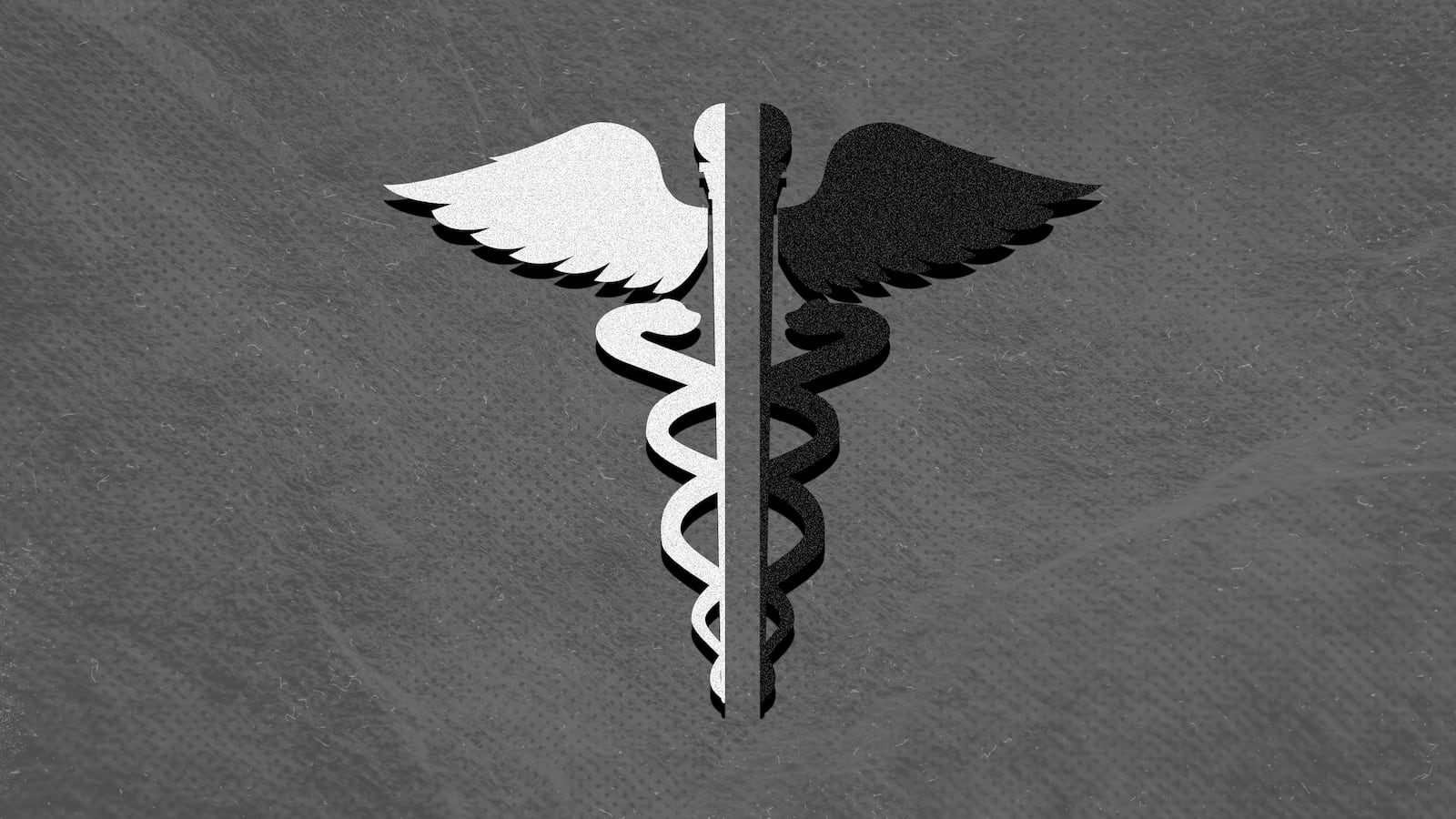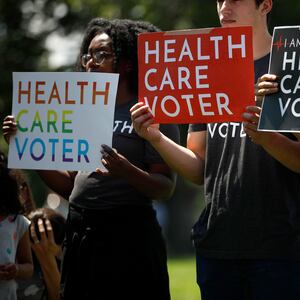Fifty years ago today (July 25), the Associated Press pulled the curtain back on the infamous Tuskegee Study.
U.S. Public Health Service doctors had been withholding treatment from hundreds of Black men with syphilis for 40 years. Worse, the doctors, who wanted to study the consequences of untreated syphilis, lied to their patients— telling them they had “bad blood” (a colloquial term often used to describe anemia, fatigue, and other conditions), and administering vitamins, iron tonics, diagnostic spinal taps and other fake “treatments.” The researchers tried, sometimes unsuccessfully, to keep the study’s subjects from receiving appropriate care over the years.
Reports about the study appeared in medical journals over the decades, but only a handful of health practitioners tried to stop it. But the study did not end until four months after Jean Heller’s AP story appeared. By then only 74 of the 399 original subjects were still alive; 128 had died of syphilis or its complications, 40 of their wives or sexual partners were known to have been infected, and 19 of their children had been born with congenital syphilis. Today, all of the men and their wives have died; the Voices of our Fathers Legacy Foundation represents their descendants.
In many Black communities, “Tuskegee” quickly became synonymous with exploitation and racist mistreatment by the medical establishment—even if details of the study itself were vague. And some came to believe the false rumor that the government had actually given the men syphilis, a charge that echoed in the later incorrect belief that HIV had been created in government laboratories in order to kill Black people.
Since the start of the AIDS epidemic—and especially since COVID-19 vaccines became available—health professionals, educators. and journalists have reached for the Tuskegee Study to explain mistrust in the medical establishment. But that’s too simple. The past matters, of course, but so does what happens every day: 20 percent of Black adults—and 37 percent of Black mothers—say they’ve experienced unfair care from a medical provider within the past year.

Participants in the Tuskegee Syphilis Study.
National ArchivesMoreover, a recent study led by the medical director of Planned Parenthood of Montana, Samuel Dickman (and co-authored by two of us), indicates that racial inequities in care are actually widening. The study analyzed 60 years of data on how much money was spent for the care of Black vs. white Americans, and counted how many doctor visits they received. The data came from 29 federal surveys of 601,803 people dating back to 1963.
In the early 1960s the racial disparities were stark; on average white people had 43 percent more doctor visits than Black Americans. The gap narrowed in the wake of the civil rights gains of the 1960s (including the desegregation of U.S. hospitals), and the implementation of Medicare and Medicaid. But it started widening in the Reagan era, reaching 68 percent in 2014-2019, the most recent period for which data is available.
And spending for all types of care combined—a measure of the total value of services the groups received—has followed a similar pattern.
In 1963, average spending for white people’s health care was nearly double (96 percent more) than what was spent for Black people. By the 1980s the difference had shrunk to near-parity, but then it rebounded as the Reagan administration made drastic cuts to the Department of Health and Human Services, Medicaid, and federal funding for maternal and child health care—all of which disproportionately harmed low-income and minority communities.
As of 2019, the white-Black spending gap was 39 percent, a difference that translates to $1,880 per person per year. Were care allocated according to medical need, the difference would be reversed, since Black people are, on average, more likely to get sick and die younger.
Inadequate insurance coverage accounts for part of the racial difference in care; Black people are more likely to have Medicaid—which many doctors and hospitals shun—or to be uninsured. And Black families’ far lower average incomes means that many with private insurance can’t afford to use it because of high copayments and deductibles. Yet insurance and income differences explain only part of the white-Black care gaps.
The paucity of Black physicians denies many Black patients the opportunity to choose a doctor whose shared experience of racism might reinforce trust. Moreover, the confluence of poor insurance and low incomes in Black neighborhoods leads to a scarcity of providers, and financial hardship for those located there by choice or historical accident.
As a result, hospitals serving predominantly Black patients are markedly under-resourced. They’re less likely to provide almost every type of expensive high-tech service, a reflection of their 38 percent lower funding for facilities and equipment. These structural (and structurally racist) barriers compound the interpersonal racism that Black people often encounter when they seek care.
“Tuskegee” must be remembered, and the unknowing sacrifice of the men and their families honored. But the families’ successful lawsuit, a federal investigation, and formal apologies by a foundation that helped fund the study and by then-President Clinton cannot suffice.
The men’s sacrifice will only be put to rest when racial inequities in medical care finally end. That will require implementing comprehensive, first-dollar health coverage for Black people, and all Americans; greatly expanding the training of Black (and other minority) health professionals; large-scale investments in hospitals and other health facilities serving communities of color; and intensive efforts to combat the racism woven into the fabric of American society.
Only then can we remember “Tuskegee,” rather than continue to live among its associated injustices.
Steffie Woolhandler and David Himmelstein are physicians and Distinguished Professors at the City University of New York’s Hunter College. Susan M. Reverby is a medical historian and the author of “Examining Tuskegee: The Infamous Syphilis Study and its Legacy” who served on the Legacy Committee that successfully lobbied for the federal apology in 1997.









